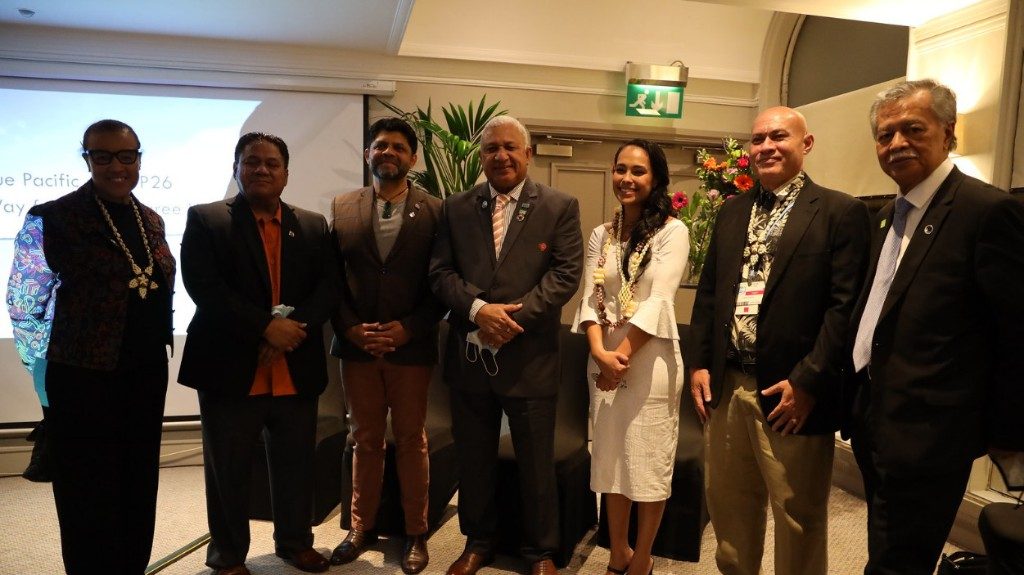The Chair of the Pacific Small Islands Developing States is hopeful that the next four and final days of the COP26 summit in Glasgow Scotland is the time for participants to knuckle down and deal with issues that need closure and agreement.
His Excellency Fatumanava Dr. Pa’olelei Luteru addressed Pasifika media this evening via Zoom hosted by the Pacific Islands Forum Secretariat and shared his observations over the first week of COP26.
Ambassador Luteru says the summit has been loaded with a lot of voices with powerful speeches and passionate expressions of climate justice. He is impressed with the youth at COP26 who have been compelling and direct with their appeals to world leaders and their challenge to be courageous with the decisions and negotiations to cut greenhouse gas emissions, the use of fossil fuels, and the provision of resources and funds to the low lying island states that are bearing the brunt of climate change.
This morning in Glasgow Pacific leaders gave feedback to the UK COP26 Presidency. Ambassador Luteru says there are still gaps within agreements and commitments, particularly ones made from the Paris agreement. He says it feels like there is a lack of ambition, urgency, and commitment from some. He says this needs to change. It has been noted the key players like China and Russia are absent from the talks. On a personal note he says that perhaps they need to look at at how they are negotiating and find a new way.
The ambassador says there are several key points that the Pacific nations highlighted during the talks. Regarding the 1.5 degree target;
Another area of concern for the Pacific nations is the financial support that was promised. $100 billion a year was set to be achieved by 2020. Ambassador Luteru says sadly the target has passed and is not going to happen. The new target is now set for 2023. With a three to four year timeline he says this could prove difficult for Pacific nations dealing with the impact of climate change now.
He says climate finance is different from aid finance and it is important that resources are not shifted from one pocket to another. With regards to mitigation and adaptation he says it needs to be a 50/50 split in climate finance mitigation.

Speaking at a special event hosted in the weekend by the Pacific Islands Forum, Secretary General of the Pacific Islands Forum Henry Puna says while it has been an arduous first week of negotiations he called on world leaders from all countries, especially the big emitters, to adopt a new mindset – one with more compassion and more consideration for others.
General Director of the Pacific Forum and Prime Minister of Fiji Frank Bainimarama outlined in 2020 the total economic cost of disasters in the Pacific was around $US 1 billion. Tropical Cyclone Pam in 2015 in Vanuatu caused damages amounting to costs 63% of GDP and Tropical Cyclone Winston in 2016 in Fiji wiped off one third of the value of Fiji’s GDP in 36 hours, on top of the tragic loss of life. Mr. Bainimarama says because of this COP26 developed countries must deliver on the $100 billion dollar finance commitment.
Pacific Blue Youth representative and advocate Gladys Habu says despite decades of scientific evidence there is still a substantial divergence between the science and the political and economic action. She says wealthy developed nations continue to choose the path to destruction, all for economic gains. While she acknowledges that the COP summits have made some progress, more needs to be done.
Despite the challenges that Pacific Island Developing States face during negotiations at the summit, Ambassador Luteru says while there is a long road of negotiations and agreements ahead of them, he remains hopeful.
Image credit: Pacific Islands Forum / Lisa Williams